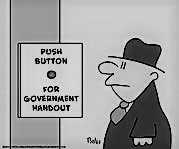A Guide for South African Christians for the 2019 Elections

A pastor, a church or even an association of churches has no business proclaiming one political party to be a better choice than another, or instructing Christians to vote for one over the other. The separation of church and state means that the church can never be an arm or an ally of an entity seeking political power. However, the church does have a role to play: to teach Christian disciples the biblical principles that you have to apply when voting. Voting, like every act a human being performs, is an act of a moral being, and it has moral value. For that reason, a Christian should want to know how to vote in a way that will please God. Once you know that, you’ll have to do your homework to find out which candidates or parties meet the biblical standards.
The Bible lays certain obligations on all human governments. These are the things God expects a government to do, regardless of their religious beliefs. Any political party that refuses or neglects to do these things is disobeying God, and a vote to support them is essentially a Christian ignoring his or her Father’s explicit will for human government. When Christians vote, they are exercising a right given to citizens of a democratic state: they are requesting certain persons to be their government. And since Christians answer to God first, their vote must represent a request for a government that obeys God’s mandate for human government.
So what does God expect from human government?
1) Government Should Protect Human Life

At the very institution of human government, God gave human beings the mandate to protect humans, because they are made in the image of God (Gen 9:6). Governments are to protect the most precious thing on earth: human life. This protection of the right to life extends to the unborn, and any party that refuses to end the holocaust of abortion does not take seriously the protection of human life (Proverbs 24:11-12). A just government will take seriously all threats to the lives of its citizenry, be they criminal threats, aggressive nations, or even industries or businesses that irresponsibly put human life at risk. Indeed, a righteous and fair government will be willing to protect life at the cost of life.
2) Government Should Display Integrity of Dealings
God requires that those who rule over men are not to be controlled by covetousness, with the inevitable bribery, perverting of justice and partiality that follows coveting. “He who rules over men must be just, ruling in the fear of God.” (2 Sam 23:3). “Moreover you shall select from all the people able men, such as fear God, men of truth, hating covetousness” (Exodus 18:21). Rulers, regardless of their personal religious beliefs, are to exercise integrity and impartiality for the sake of their office (Proverbs 16:12; 28:15-16; 29:2, 4, 12, 14).
3) Government Should Restrain Evildoers and Uphold the Law

Augustine said that government is a necessary evil, that it is necessary because of evil.Government is required to restrain evildoers through the administration of justice, and the upholding of the law (Rom 13:1-4). At this point, we enter into a debate over what kind of laws a government should make. Put simply, the mandate for a God-pleasing government is to legislate what will restrain those who would harm their neighbours, and make laws that create enough civil order for human beings to live “quiet and peaceable lives in all godliness” (1 Tim 2:2).
A government that upholds the law through the appointment and support of a good and effective police force, judiciary, and penal system shows a commitment to law and order. A nation where evil is punished and justice upheld will be set free to prosper on almost every other level. This is a key mandate from God to human government (Proverbs 14:34, 16:10, 17:15, 20:8, 20:26, 24:23-25, 25:5).
4) Government Must Protect Private Property
The right to private property is one of the fundamental rights of human beings, and a basis of true civil freedom. Stable families, businesses and communities depend on the economic and social stability which private property ownership brings. God Himself protects this right (Ex 20:15, 17), and consequently expects government to protect it as well. A government that seeks to undermine this right through expropriation without compensation (theft), excessive taxes, penalties, or other levies that enriches itself and penalises the private property-owner is expressing a profound injustice, and overtly or indirectly showing its contempt of the freedom of its citizens.
Notice what government is not required by God to do: support one religion over another, create jobs, manage and legislate the economy, increase the wealth of the country or the wealth of its own government, provide housing for its citizens, provide medical support or assistance to its citizens, or make sure every citizen is educated. Now, we might object that this is an argument from silence: merely because the Bible does not say government ought to do these things does not mean it should not. But that is precisely wrong! God does speak on human government in His Word, and when He does, He is prescriptive regarding what human government is to do. We dare not insist that God wills other things for human government, when God has spoken clearly as to what He expects, and what displeases Him. To say otherwise is to literally put words in God’s mouth.

Indeed, some of the things people wish government to provide are actually required of others. Paul makes it clear in 2 Thessalonians 3:10 that able-bodied human beings are responsible to earn their own living and see to their own welfare. First Timothy 5:8 makes it clear that caring for the elderly is something that falls firstly upon the family. When governments take the responsibility God gives to others, they create unhealthy expectations and foster immature dependence.
Certainly, a citizen may wish that a government provided free medical care, free education, plenty of jobs, and a competitive currency. But these are preferences of the citizen, not a mandate from God. Indeed, some would argue that when a government seeks to manage these things, it ends up hindering the country, rather than helping it. It could be that once a government is successful in doing the direct mandates of God, it may be able to promote some of the other goods such as housing and health. Regardless of your view on how involved a government ought to be in the economy, healthcare or education, you’ll have to agree that Scripture does not call on government to be the final steward for these things.
A Christian may wish that the government professed Christ, and certainly, true believers in Parliament would surely be a blessing to the country. But this is not God’s mandate to government. We are not required to vote for someone because he or she or his or her respective party claims to be Christian, nor are we required to dismiss a party that does not favour one religion over another. We are voting for a government. God is clear what a government is to do: show integrity, uphold the law, punish evil, protect life, and protect private property. When a party explicitly fails to do one of these God-given mandates, or even acts to defeat their implementation, it disqualifies itself as a contender for a God-pleasing government. Should you find a party that seems to uphold these four, you have a valid choice for your vote as a Christian.

– David De Bruyn, Professor of Church History, Shepherds’ Seminary Africa & Sr. Pastor of New Covenant Baptist Church

